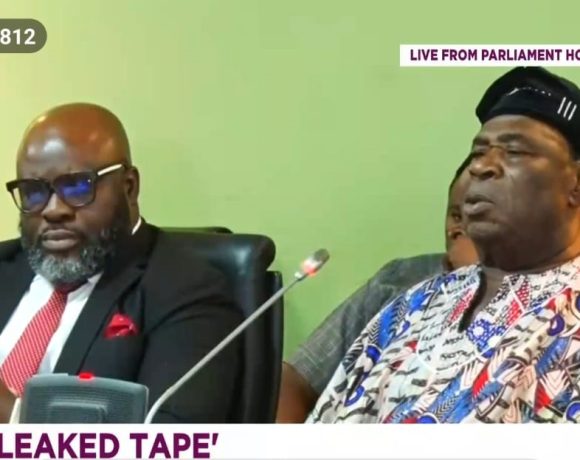IMANI Drags EC To CHRAJ Over ‘Wastage Misuse’ Of Resources

IMANI Africa, a policy and education think tank, has petitioned the Commission on Human Rights and Administrative Justice (CHRAJ) to investigate the Electoral Commission of Ghana (EC) over alleged misuse of the nation’s scarce resources.
The think tank, accused the EC of ‘disposing off’ perfectly working election equipment, merely to facilitate the procurement of new ones.
According to IMANI, they are, particularly worried about the manner the election management body is handling the nation’s scarce resources in the discharge of its duties, which conduct they believe amounts to “misappropriation’, ‘wastage’, and ‘misuse’ of said resources”.
The 18-page document, dated May 4, 2024, and addressed to the Chairperson of CHRAJ, was signed by Franklyn Cudjoe, Bright Simons, Selorm Branttie and Kofi Bentil.
Excerpts of the petition reads, “We write to invoke the jurisdiction, powers, mandates, and duties under Chapters 18 and 24 of the 1992 Constitution of the Republic of Ghana, which entrust the care of national resources and the charge of ensuring sound conduct among public officers to the Commission on Human Rights and Administrative Justice (CHRAJ). We also refer to Section 7 of Act 456 in this same regard.
“We are gravely concerned by the Electoral Commission (EC) of Ghana’s handling of the nation’s scarce resources in the discharge of its duties, which conduct we believe amounts to ‘misappropriation’, ‘wastage’, and ‘misuse’ of said resources”.
IMANI added, “The EC’s conduct appears to us as demonstrating a conflict between its duties under various laws to judiciously apply the resources of this country for the good of the citizenry, on the one hand, and its tendency to make decisions favourable to various commercial vendors and transactors, on the other hand. Furthermore, we believe that the EC’s most recent conduct has been driven by a need to curtail transparency and accountability, and thus was motivated by a collective conflict of interest.”
Key Issues in the Petition
1. At the core of the Petitioner’s case is whether the EC’s BVMS – prior to the award of various multimillion-dollar contracts to Thales, Neurotechnology, Fairgreen, and others in 2020 to procure a new version – (“the legacy equipment”) was entirely or uniformly obsolete and therefore needed to be disposed of en masse in a public auction in the manner so disposed.
2. The Petitioner contends that the roughly 245,000 “other obsolete items” that the EC asked the Finance Ministry to approve for public auction, which the EC confirms included the legacy equipment, must have contained many laptops/notebooks, scanners, printers, cameras, and/or other ancillaries that could not have been said to be obsolete and therefore should not have been auctioned off on the basis that they are obsolete.
Whilst it is true that IT equipment is sometimes subject to a special provision for accelerated depreciation (including in relevant procurement and disposal guidelines), this is often linked to their frequent use, low maintenance, and lack of servicing. The EC’s IT equipment, however, operate under a special dispensation: they are used highly infrequently, are checked and serviced before and after use, and some have been refurbished periodically.
Refurbished equipment attain lifecycle extension. The petitioners posit, therefore, that the EC’s equipment retain residual value for longer than that of many other organisations. It bears mentioning in this regard that the EC intends to use BVMS equipment procured in 2020 for the 2024 elections even though it had declared equipment purchased and/or refurbished in 2018/2019 as obsolete for the purposes of the 2020 elections.
3. The Petitioner contends that by classifying all these various legacy equipment as uniformly or entirely “obsolete”, instead of clustering them properly into sets based on their actual acquisition date, state or condition, brand or make, and by other pertinent characteristics, the auction was rigged from the outset to hand over a large number of valuable legacy equipment to lucky buyers who will be able to profit from their resale or continuous commercial utilisation to the financial detriment of the state.
Even if the EC genuinely had no use for the items, being fully aware of the financial constraints facing the country, the EC knew, or ought to have known, that there are many state institutions that could have benefited from these electronic equipment, including the National Identification Authority, the Ghana Police Service, Ghana Passport Office, and many others who have recently bought similar devices at cost to the State. For this reason, equipment in good condition, as assessed by the original equipment vendors or their authorized resellers or dealers, should have been removed from auction lots. It is not surprising that the relevant disposal Guidelines state as follows: “Generally, donation of the equipment is the recommended approach as some community service organisation may be able to extract some value from the equipment.” (Paragraph 8.4: Guidelines for Disposal of Goods & Equipment; 2019).
4. The Petitioner contends that by bundling the legacy equipment with unserviceable automobiles and motorcycles, and thus failing to describe the items properly (i.e. instead of using their proper descriptive names, such as laptops, digital cameras, scanners, printers, etc.), including providing their brand information, length of use, and other such information, the EC ensured that the auction will fail to fetch the right pricing for these legacy equipment.
5. The Petitioner contends that by failing to describe the legacy equipment properly, honestly, and transparently as per paragraph 4 above, the advertisement placed in the Daily Graphic to announce the auction on or around 1st February 2023 was deceptive and unlikely to ensure that the Republic will obtain value for money from the auction.
6. The Petitioner contends that the EC did not conscientiously comply with the spirit and letter of the Public Procurement Authority’s rules for the disposal of such items (“Guidelines for Disposal of Goods & Equipment”; 2019). The Petitioner categorically asserts that the EC’s action defies the aim of the said guidelines, which is stated as follows: “The aim is to achieve the best possible outcome by gaining the best available net return when selling and to ensure that Procurement Entities are even-handed, transparent and honest in all dealings” (paragraph 1.2, Guidelines for Disposal of Goods & Equipment”; 2019).
7. The Petitioner contends that the purported request for a valuation report from the State Valuer and the seeming compliance with the Board of Survey requirement in the regulations were compromised by a failure to ensure adequate categorization of the legacy equipment to ensure the right valuation outcomes.
8. The Petitioner contends that the absence of effective classification, a lack of fidelity to the true provenance of different lots within the EC’s legacy BVMS portfolio, and similar problems with the approach to valuation, led to an underestimation of the original acquisition cost of these items, and of the appreciation in their lifecycle value over time due to refurbishments, which in turn led to the wrongful use of the “public auction” method rather than the “public tender” method. Since the public tender method has more stringent criteria for the safeguarding of public resources, the EC’s conduct may have been necessitated by the need to avoid the transparency, Public Procurement Authority oversight, and stricter even-handedness required in public tenders. The Petitioner believes that this constitutes an element of procurement abuse, corruption, and conflict of interest.
9. The Petitioner believes that in a proper valuation exercise, having regard to the dates at which various items within the EC’s legacy BVMS portfolio were acquired and the full costs associated with their acquisition, the value of the disposed of/discarded legacy equipment would exceed the threshold at which a public tender would be mandatory. The full costs include all the costs of configuration, logistics, installation, refurbishment, and consulting to achieve their final form for use in public elections related matters.
10. The Petitioners believe that the selection of the auctioneers should have been by a public call in order to ensure full compliance with public agency financial regulations in Ghana.
11. The Petitioners have heard the Director of Electoral Services mention, during remarks on television, that the Auction House selected for the public auction is one “Sanidaso Mart”. The Petitioners are unable to confirm that the said auction house is duly registered with the Auctioneers Registration Board of the Ministry of Interior in Ghana.
12. The Petitioners believe that upon acquisition of the legacy equipment, the successful bidder sifted through the equipment, and differentially extracted massive commercial value from the equipment purchased and/or refurbished at great cost to Ghana, and then sold or transferred the older and lower-end equipment (such as long-dated BVDs) to Electro Recycling Ghana Limited.
13. The Petitioners have sighted a statement from the EC (exhibit 3) in which they admit to not knowing that the legacy equipment was in the custody of any recycling company and therefore involved the Police to retrieve and test a sample of the devices. The Petitioners contend that for such sensitive equipment, the proper conduct of the EC should have involved a special agreement with the acquirers to ensure that the right controls were in place for the handling of the equipment.
14. The Petitioners have made inquiries and have been informed that special processes for destroying sensitive electronic media were not followed by the EC, the winning bidder, nor by the aforementioned recycling plant.
15. The Petitioners are informed by experts that the removal of sensitive data from such sensitive items as the legacy equipment requires sophisticated processes only manageable by specialized entities with the capacity to ensure the complete non-recoverability of such data.
The Petitioners are informed that whilst Electro Recycling Ghana Limited has permits from the Environmental Protection Agency in respect of the environmental impact and footprint of its work, it did not, at the time it received parts of the legacy equipment, have any relevant certifications, recognition, or partnerships with the likes of the Data Protection Commission, the Cybersecurity Authority, or the National Information Technology Agency that could have equipped it with capacity to ensure the safe handling of devices containing sensitive personal data of millions of voters as well as, in the case of the BVDs, voting verification data.
The Petitioners also believe that the aforementioned recycling company had no certifications from reputable auditing organisations attesting to its capacity to handle sensitive data. In the course of CHRAJ’s investigations, the Petitioners intend to establish that the EC’s data erasure regime prior to the transfer of the legacy equipment to the winning bidder, and thereafter, did not satisfy best practice.




